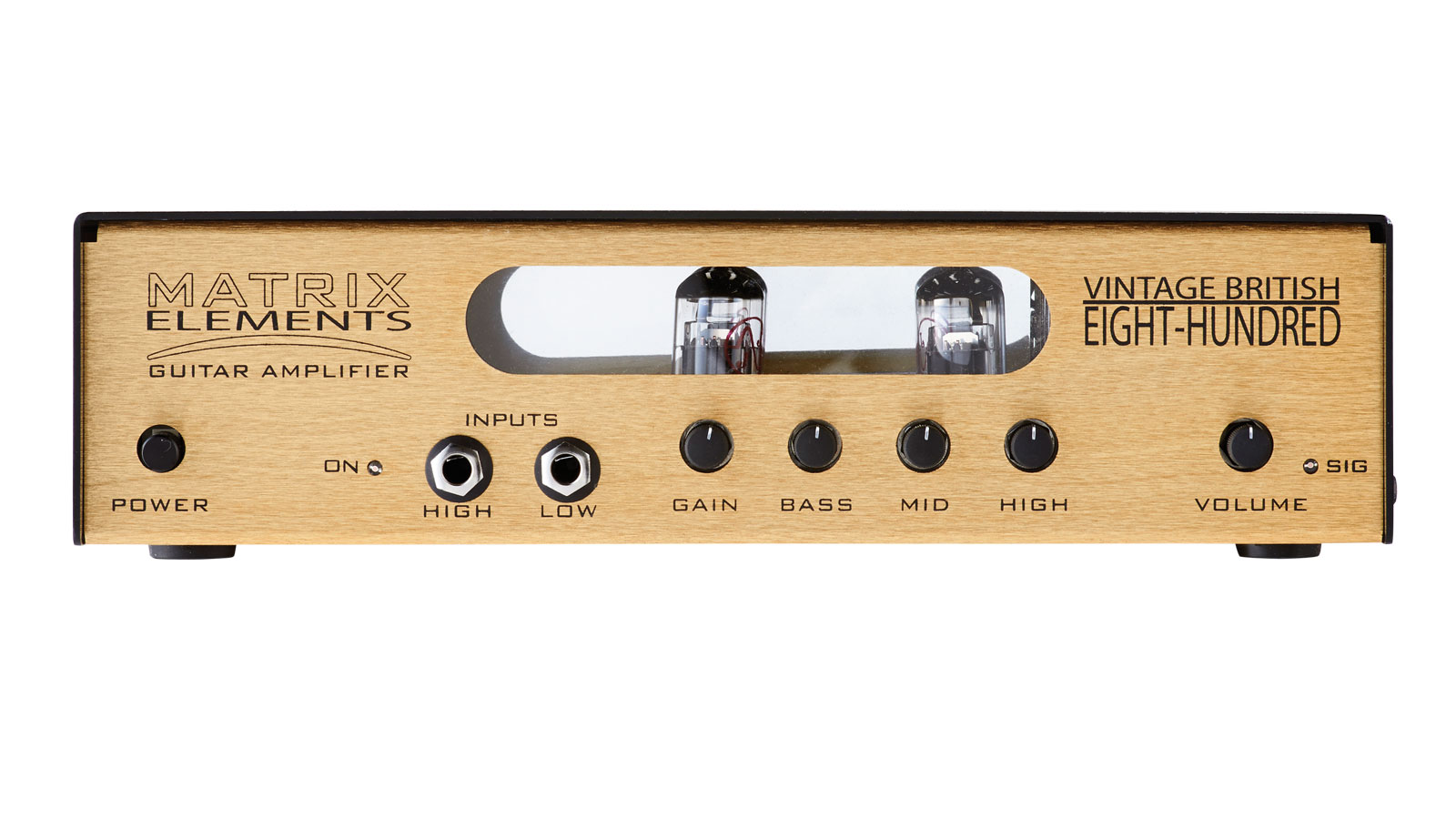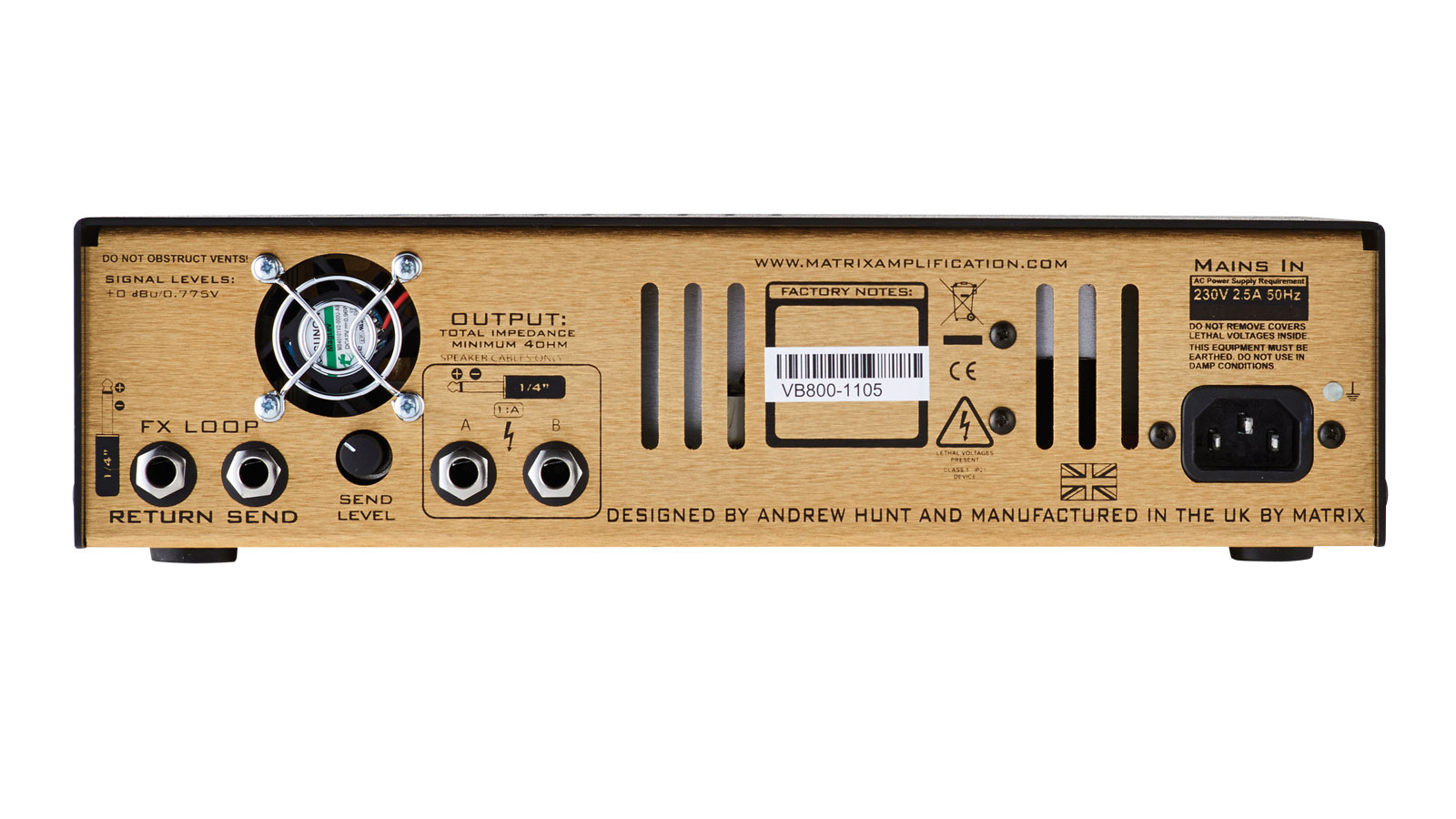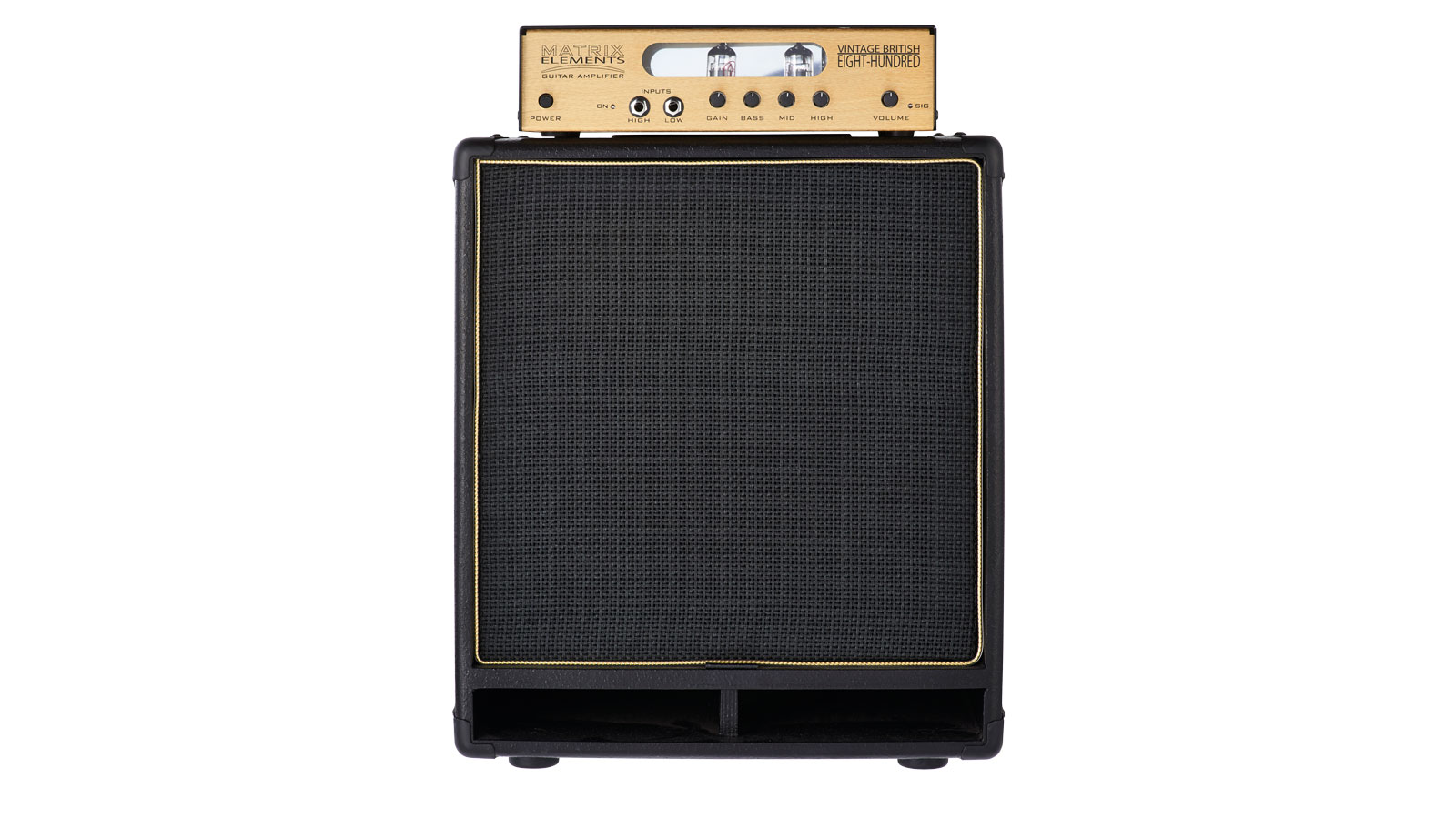MusicRadar Verdict
Immensely portable with great tone and good looks, too.
Pros
- +
Lightweight. Loud enough to handle any stage. Warm tones.
Cons
- -
Needs a side-chain FX loop and speaker-emulated direct output.
MusicRadar's got your back

Matrix Elements VB800

Rear

Cabinet
Matrix is well known in the PA field for extremely powerful, yet lightweight power amplifiers. It has scored a big hit with many pro guitar players, too, with a range of stereo power amps, created to be perfect partners for high-end digital gear from the likes of Kemper and Fractal Audio.
Look into any modern pro touring rack, and if you see one of the aforementioned preamps, it's a pretty safe bet that underneath it there will be a Matrix power amplifier, ranging from the compact GT800FX up to the mighty GT1600FX with 840 watts per channel.
With a strong presence in the rack amplification market, Matrix's decision to build a 'proper' guitar amp was an obvious next step, and here it is - the Matrix Elements VB800.
"The VB800 is undeniably light in weight, the engineering is solid and strong enough to handle anything that non-stop touring might throw at it"
Based on a well-known British head dating back to the 1980s, the VB800 is a simple, single-channel design, with a pair of high- and low-gain input jacks, a series effects loop and not much else.
One of the things it doesn't have in common with its namesake is weight - at just under two kilograms, the VB800 is one of the lightest heads we've plugged into. It's also potentially one of the most powerful, using half of a Matrix GT100FX power amp to deliver a whopping 420 watts into 4 ohms, 300 watts into 8 ohms, or a more civilised 150 watts into 16 ohms - the impedance of its specially designed and equally lightweight Neolight 1x12 enclosure that can be comfortably carried in one hand.
The VB800 blends functionality with minimalist looks; a two-piece brushed aluminium chassis is finished half-and-half in gold and black, with a laser-engraved Matrix Elements logo on the top. While the VB800 is undeniably light in weight, the engineering is solid and strong enough to handle anything that non-stop touring might throw at it.
One large printed circuit board holds all of the components, including miniature and surface-mount stuff, next to a pair of 12AX7 dual triode preamp valves. These sit in front of a mirror-finish screening plate and are visible through a window that sits over the front panel, lit by LEDs when powered up. On the other side of the screen sit the less photogenic components that drive the VB800's solid-state power amp.
Want all the hottest music and gear news, reviews, deals, features and more, direct to your inbox? Sign up here.
The VB800's controls are easy to understand - gain, volume and a three-band passive EQ, together with a pair of high- and low-gain inputs. On the rear panel, there's a series effects loop with a variable send level, and a pair of speaker jacks.
Feel & Sounds
When an amp is this simple, there's no hiding place. The sounds have to be there the instant you plug in. The VB800 doesn't disappoint: it has the gritty aggression and harmonic richness of a properly sorted original, without the 'foil paper on teeth' highs, nasal midrange honk and understated bass.
"Our regular Strat and PAF-loaded Les Paul both sounded full of character, delivering 80s rock riffs with plenty of authority"
We're glad Matrix resisted temptation and chose not to over-gain the preamp - there's just enough for serious overdrive effects. Consequently, the VB800 sounds 'real': it's warm and it breathes with the kind of dynamic response you expect from a good valve amp.
Our regular Strat and PAF-loaded Les Paul both sounded full of character, delivering 80s rock riffs with plenty of authority. Pedals work well, too, either before the input or in the effects loop.
It goes without saying that the VB800 is loud. However, because there are no unpleasant artefacts assaulting the senses, it's loud in such a way that you don't realise until after you switch off just how much sound pressure it can generate.
Combined with Matrix's Neolight cabinets, the VB800 fulfils a dream for many guitar players: to be able to walk into a gig carrying everything with ease, yet deploy a rig loud enough to handle any stage, with ample power to spare.
There are some things we wish were there, such as a speaker-emulated direct output and a proper side-chain effects loop. There's no carry bag or rack adaptor kit either: a little odd, perhaps, given the brand's pro PA heritage. Overall, though, the VB800 provides a lot for the price, and we hope Matrix continues to expand the Elements range. One to check.